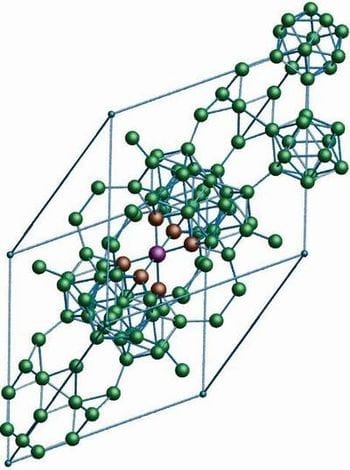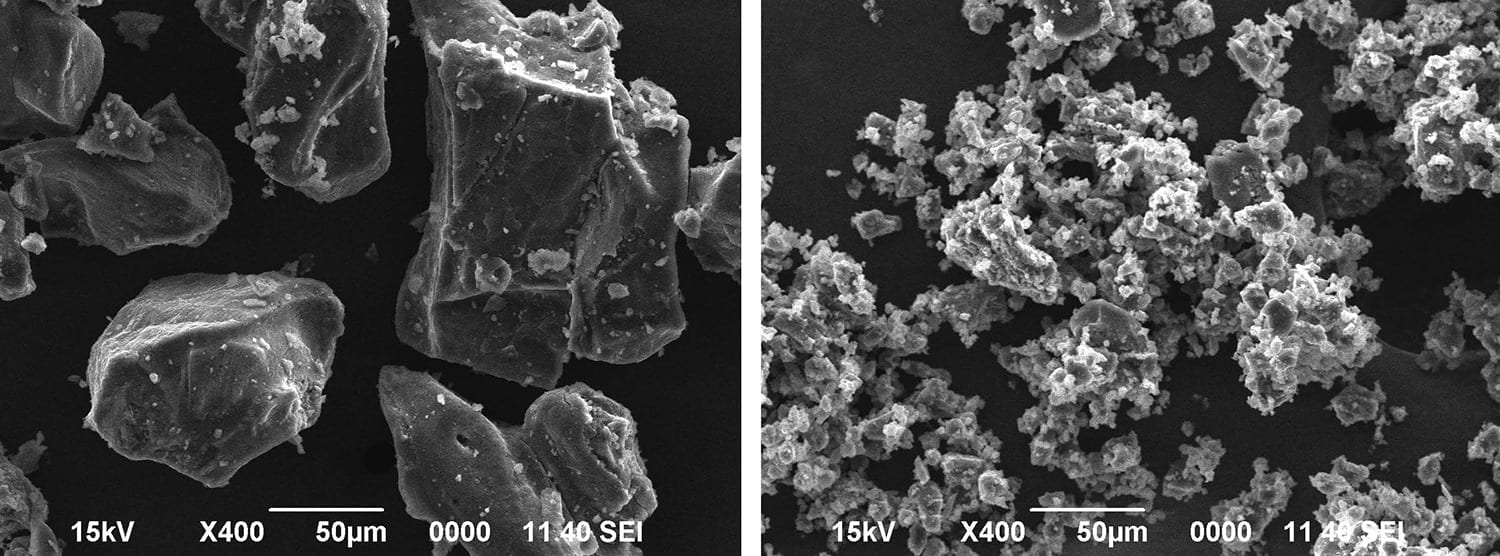
New techniques inspired by nature for accelerated aging and chemical extraction of mineral ores may lead to cheaper, safer and greener manufacturing processes
Nature writ large is filled with examples of transformative chemical reactions that take place in the solid state — minerals found deep underground or on the surface of the earth that undergo chemical reactions over time when they are subjected to the right mix of environmental conditions.
The same cannot always be said for synthetic chemistry at the industrial scale. Factories that make pharmaceutical drugs and ore processing plants where precious metals are extracted from mined minerals tend to rely not on solids but solution chemistry — mixing salts or rocks with large volumes of often highly corrosive or toxic liquids to achieve chemical reactions and extract useful products. Those solvents, besides being expensive, often corrosive, and sometimes toxic to the environment, may be dangerously volatile — even explosive.
Now a team of researchers led by Tomislav Friš?i?, a professor at McGill University, is developing new approaches to chemical synthesis and mineral processing based on solid-state chemistry — and inspired by examples from nature.
At the 23rd Congress and General Assembly of the International Union of Crystallography, held August 5-12, 2014 in Montreal, Friš?i? will describe some of his unconventional approaches and how they promise better, safer and far less expensive methods for extracting metals from mineral ores as well as for the scalable synthesis of pharmaceutical drugs.
“You can use solid-state chemistry to make these materials much easier and cheaper, without the use of aggressive solvents or high temperatures,” Friš?i? said.
Read more . . .
The Latest on: Solid-State Chemistry
[google_news title=”” keyword=”Solid-State Chemistry” num_posts=”10″ blurb_length=”0″ show_thumb=”left”]
via Google News
The Latest on: Solid-State Chemistry
- Breakthrough in Sodium Battery Chemistry Promises Lower Costson April 27, 2024 at 12:00 pm
A new mass synthesis process for sodium-containing sulfides could make all-solid-state sodium batteries more affordable and safer than lithium-ion batteries.
- World's thinnest gold leaf, dubbed 'goldene,' is just 1 atom thickon April 25, 2024 at 12:22 pm
Goldene is the latest 2D material to be made since graphene was first created in 2004. Scientists have created the world's thinnest gold leaf, which is just a single atom thick. The new material, ...
- Here's Why Solid State Batteries Might Not Be The Next Best Thingon April 15, 2024 at 4:30 pm
Solid-state batteries are the holy grail of the EV industry. But now, some of its main advocates are expressing doubts about it.
- Discovery brings all-solid-state sodium batteries closer to practical useon April 11, 2024 at 6:29 am
The pursuit of greener energy also requires efficient rechargeable batteries to store that energy. While lithium-ion batteries are currently the most widely used, all-solid-state sodium batteries are ...
- $45K EV smuggles a 620-mile solid-state battery out of the labon April 10, 2024 at 11:31 pm
US$45,600) flagship L6 Lightyear Max. It's not a strictly zero-fluid solid-state chemistry, instead utilizing a semi-solid layout that includes solid material suspended in a liquid electrolyte.
- New materials discovered for safe, high-performance solid-state lithium-ion batterieson April 2, 2024 at 3:33 am
His research interests include Inorganic Materials Chemistry, Solid State Chemistry, Combinatorial Technology, and Materials Informatics. He has over 98 referred papers and 14 Japan patents and ...
- New materials discovered for safe, high-performance solid-state lithium-ion batterieson April 1, 2024 at 5:00 pm
and fast-charging solid-state Li-ion batteries. In a recent study published in Chemistry of Materialson 28 March 2024, a research team led by Professor Kenjiro Fujimoto, Professor Akihisa Aimi ...
- Solid State Materials Chemistryon December 3, 2023 at 11:27 pm
Paul Attfield, University of Edinburgh ‘Finally, we have a substantial textbook that addresses a gap in our teaching tools when it comes to solid state chemistry. This detailed work covers many ...
- CHEM.5221 Solid-State Materials Chemistryon August 8, 2021 at 2:50 am
This course is an introductory course to materials and solid-state chemistry for graduate students. Topics covered include the electronic and optical properties of solids, the properties of metals and ...
- Solid State Chemistry Groupon December 7, 2020 at 11:02 pm
The Solid State Chemistry Group is one of the RSC's many Interest Groups. The Interest Groups are member driven groups which exist to benefit RSC members, and the wider chemical science community, in ...
via Bing News










